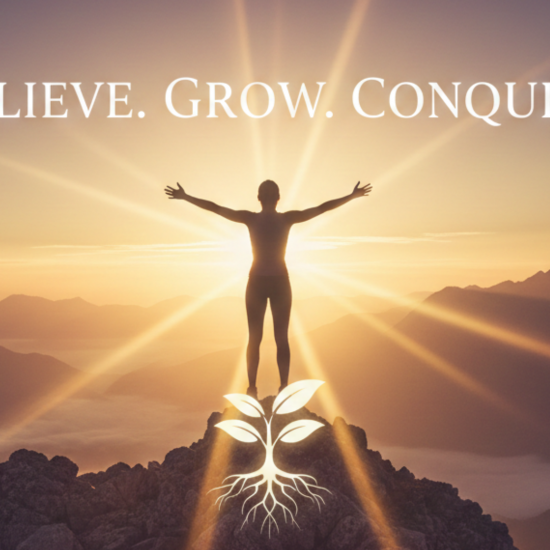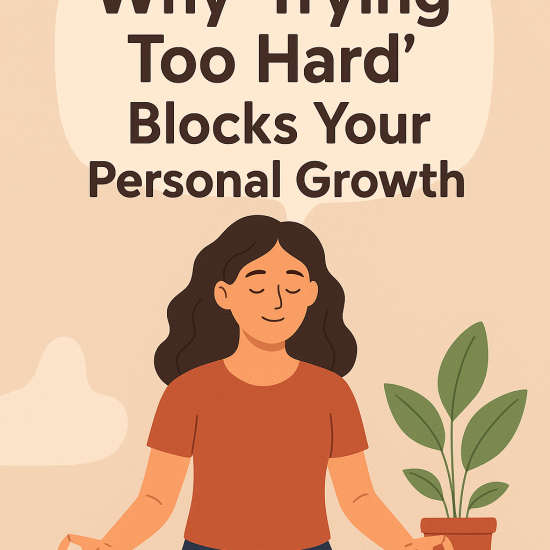Why do some people achieve their goals while others struggle, even with the best intentions? The answer often lies in the difference between motivation and discipline, and more importantly, how a career coach confidence or personal development coach approaches these two forces.
Modern psychology shows us that willpower isn’t the magic solution to long-term success. Relying on motivation alone is one of the most common reasons people fail to sustain progress. Let’s explore what science says about intrinsic motivation, where discipline fits in, and how coaching bridges the gap between dreaming and doing.
Motivation: The Spark That Starts the Fire
Motivation is the emotional force that prompts us to act. It’s that initial push to join a course, start a new habit, or apply for a job. Motivation is typically fueled by emotions—excitement, fear, desire, or even anger. However, the problem with motivation is that it fades.
According to intrinsic motivation theory, long-lasting behavior is driven not by external rewards but by internal desires such as purpose, autonomy, mastery, and connection. This means that when your goals are aligned with your values, you’re more likely to stay engaged.
But motivation still fluctuates. Stress, distractions, or a bad mood can drain it quickly. This is where people fall into cycles of starting strong and then quitting halfway.
Discipline: The Engine That Keeps Going
While motivation is emotional, discipline is intentional. It’s the ability to follow through regardless of how you feel. Discipline is built through consistency, self-awareness, and the ability to delay gratification.
Discipline creates results when motivation is low. But building it is a process it’s not a personality trait, it’s a skill.
People often mistake discipline for harshness or perfectionism. In reality, true discipline involves compassion, structure, and flexibility. It’s the commitment to your future self, even when the present feels uncomfortable.
What Psychology Says About Intrinsic Motivation
Psychologist Edward Deci and Richard Ryan introduced Self-Determination Theory, which identifies three key elements that drive intrinsic motivation:
- Autonomy – Feeling that you have control over your choices
- Competence – Believing you can succeed
- Relatedness – Feeling connected to others and your purpose
When these needs are met, people are more likely to stay motivated over time. However, without a strategy or support system, even intrinsic motivation can burn out.
This is where coaching makes all the difference.
How Career Coaches and Personal Development Coaches Think Differently
Coaches don’t just cheer you on when you’re motivated. They help you build habits that align with your values and goals, so that progress continues even when motivation fades.
Here’s how coaches shift the game:
1. From Willpower to Self-Awareness
A career coach confidence approach begins with exploring your “why.” Why do you want a new job? Why do you feel stuck? Instead of forcing action through willpower, coaches guide you to understand the internal drivers behind your goals.
Self-awareness reduces resistance and fuels deeper commitment.
2. From Hustle to Alignment
Many people think they need to “push harder.” Coaches challenge that belief. A personal development coach focuses on aligned action doing less, but better. They help you move from scattered effort to purposeful steps that reflect who you are becoming.
3. From Emotion-Based Action to Structure
Coaches help you move beyond emotionally driven choices. Feeling tired or unmotivated doesn’t stop progress when you have systems in place. Coaches support the creation of:
- Morning routines
- Time-blocking schedules
- Goal-tracking frameworks
- Reflection practices
Discipline becomes less about pressure and more about a structure that supports you.
4. From Criticism to Compassionate Accountability
When you fail to follow through, self-judgment creeps in. A coach doesn’t shame you. Instead, they help you look at what happened, learn from it, and realign.
This compassionate approach builds trust in yourself. Over time, you develop an inner voice that’s supportive, not self-sabotaging.
Real-Life Example: Motivation Meets Mastery
Jai wanted to switch careers. He had a passion for design but lacked confidence. He kept watching tutorials and scrolling job boards but took no real action.
Working with a career coach, Jai realized he was waiting for motivation to magically appear. Together, they developed a plan: 30 minutes a day building his portfolio, one outreach message per week, and a weekly reflection journal.
When Jai didn’t feel like doing the work, he remembered why he started. The coach helped him reframe setbacks, stay consistent, and take aligned action. Six months later, Jai landed his first freelance design job.
Why Coaching Works When Discipline Fails Alone
Discipline is a skill, but it doesn’t thrive in isolation. Most people need support to create habits, process emotions, and stay focused.
A coach acts as a thought partner, accountability ally, and belief mirror. They see your potential before you do and guide you when self-doubt clouds your vision.
They don’t just teach you to be disciplined. They help you become the kind of person who naturally follows through, because your actions reflect your values and goals.
The Coaching Mindset: Empowerment Over Force
Unlike traditional productivity hacks that rely on forcing outcomes, coaching is based on empowerment. Coaches don’t expect you to hustle harder. They help you build a life that works with your energy, not against it.
Whether you’re building a new career path, improving confidence, or deepening your purpose, the transformation is not just what you do it’s who you become in the process.
Motivation Fades, But Coaching Sustains
The truth is simple: Motivation may start the journey, but discipline finishes it. And coaching? Coaching is the bridge between the two. By addressing mindset, habits, emotions, and values, a personal development coach or career coach helps you move from wishing to doing, without relying on fleeting feelings.
If you’re tired of waiting for motivation and ready to create sustainable progress, it’s time to partner with a coach who helps you turn discipline into a way of life.
Ready to Take the Next Step?
Visit https://loamayi.com to connect with a coach who can help you build confidence, structure, and self-alignment for your career and personal goals.





